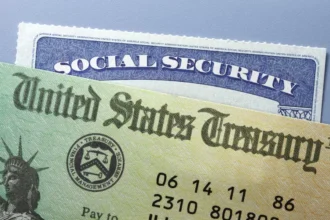The widespread acceptance of Bitcoin as an online payment method has made it imperative to recognize the potential risks associated with its use.
Safeguarding your Bitcoin from online threats and ensuring its secure storage are vital considerations as its usage continues to grow. Quantum Code and similar online trading platforms offer avenues for Bitcoin investment, but understanding how to protect your investment is paramount.
So, how can you go about doing that? Recognizing that knowledge is key, you have the option to take proactive measures independently or seek guidance from cybersecurity experts. This article aims to explore effective strategies for safeguarding your Bitcoin against online threats.
We’ll delve into topics such as two-factor authentication, robust password practices, cold storage, and multi-signature wallets. These measures are essential for fortifying your cryptocurrency holdings against potential hackers.
Bitcoin investors face online threats.
Bitcoin investors are confronted with various online threats, necessitating a comprehensive understanding of these risks. Phishing schemes and malicious malware are among the common threats that Bitcoin holders must remain vigilant against in order to protect their assets effectively.
Unsavory software
Malware, which is any malicious software such as viruses or Trojan horses, can infect your computer and steal your Bitcoin. It’s important to keep your antivirus software up to date and only conduct Bitcoin transactions through reputable online platforms to protect your assets.
Best Practices for Cloud Security
There are several best practices you may adhere to when it relates to cloud security. The following information may help you safeguard your Bitcoin from internet threats:
Firewalls
A firewall is the first protection against hostile actors accessing your systems. Ensure any barrier you use is current to guarantee that it can block the most recent attacks. Remember to use two-factor authentication as an additional security measure.
Authentication of users
Use secure passwords and zealously preserve user login credentials. Also, you should restrict access by requiring users to check in before making modifications and routinely examine logs to spot any unusual behavior or interference with your network or systems.
Patches and updates as needed
Maintaining the most recent security updates on your hardware and software can assist in lessening any vulnerabilities that criminals can take advantage of.
Utilizing Encryption and Two-Factor Authentication
Securing your Bitcoin wallet is crucial for safeguarding your digital assets, and implementing two-factor security and encryption is among the most effective methods to achieve this. While these measures are straightforward, they greatly enhance the security of your funds.
Two-factor authentication (2FA) adds an extra layer of security by requiring an additional login step, often in the form of a code sent to your phone or email. This additional step helps thwart unauthorized access attempts, even if someone manages to guess or obtain your password.
Encryption is another essential tool for ensuring the confidentiality and security of your wallet’s private information. By encrypting data using encryption software, you can restrict access so that only users with a unique key or passphrase can decipher it. This means that even if someone gains access to your account, they would require the key or passphrase to access critical information about your wallet holdings.
Setting up two-factor authentication and encryption only takes a few moments, yet it significantly reduces the likelihood of a successful attack on your Bitcoin wallet. By incorporating these security measures, you can significantly enhance the protection of your digital assets.
How to Safeguard Your PC from Malware
Your computer has to be protected just as much as your wallet. It’s essential to take precautions to safeguard your device since malware and viruses can hijack your machine and retrieve the stored Bitcoin.
Here are some pointers for being secure:
Install trustworthy antivirus software and make sure it’s current. Since it will stop malicious files, identify unusual activities, and quarantine any dangers before propagating, it should be someone’s first line of protection.
Don’t click on sites you don’t trust or open emails via unknown senders. Be cautious about what you view online since this might be a route for malware to enter your machine.
Keep your computer system updated with the most recent patches and developer fixes. Install them as soon as available because operating systems often provide security upgrades to shield users from internet dangers.
Use strong passwords for all your services, and be sure to change them often to keep one step ahead of hackers who are always hunting for vulnerabilities they can attack.
Following these easy steps, you can safeguard your online safety and the Bitcoin in your wallet from would-be attackers!
Conclusion
In conclusion, it is important for users to take responsibility for safeguarding their Bitcoin from internet risks. This can be achieved by using strong passwords, enabling two-factor authentication, and adopting secure online behaviors.
It is also important to be cautious of strangers and to only use reputable platforms for Bitcoin transactions. By practicing due diligence and adhering to best security practices, users can protect their digital currency and prevent it from falling into the wrong hands.











